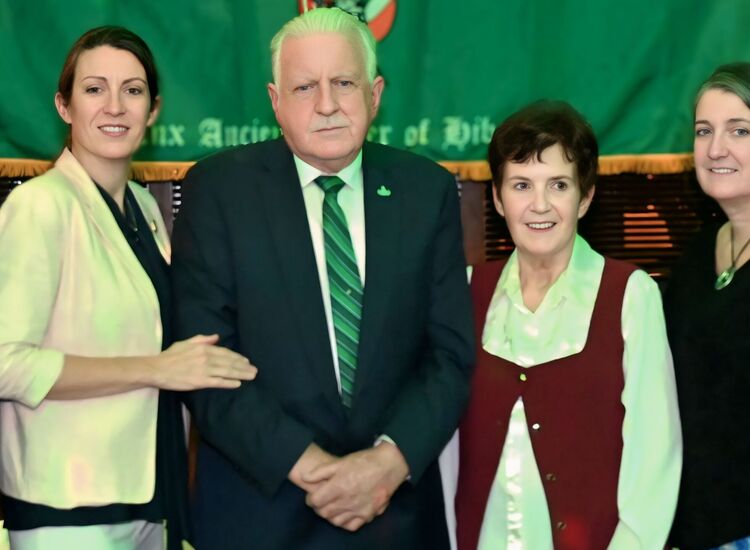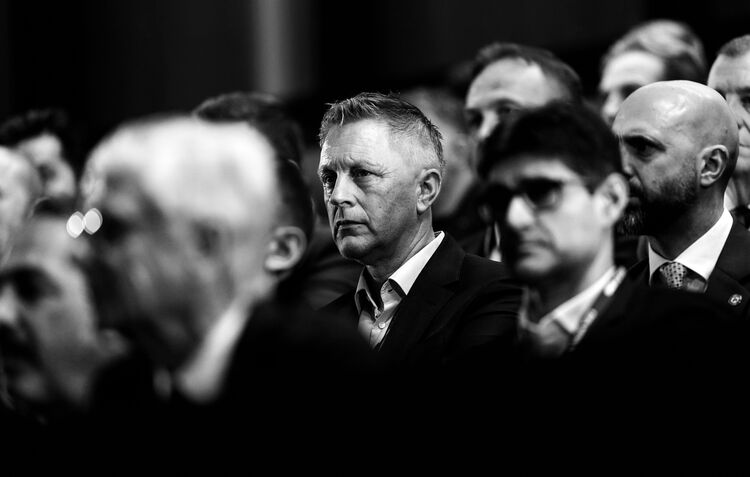The Parting Glass By Dermot Bolger • With Ray Yeates • Directed by Mark O'Brien • at the Barrow Street Theatre • Through July 31, 2011
Boiled down to its essence, Dermot Bolger's The Parting Glass is an honest attempt on the part of a respected writer to come to grips with the almost total collapse of what, only a few years ago, came to be widely known as the "Celtic Tiger,"
"The Parting Glass" is, in many ways, a sequel to playwright Bolger's much admired 1990 success, "In High Germany." Written for the Gate Theatre, "Germany" used the metaphor of football to explore the lives of three economic migrants forced to leave Ireland in order to make a living wage.
"In High Germany," which has been seen on New York stages for brief runs on two occasions, finds its central characters, as Bolger puts it in a program note, "sharing a terrace for the last time."
The earlier play, set in 1988, was narrated by Eoin, a 29-year-old Dubliner. After the Irish football players were upset by a surprise victory on the part of the team from Holland, having taken advantage of what Bolger calls "a dodgy Dutch goal," Eoin finds himself returning not to his old life in Ireland, but to a new life in Hamburg, with "a son about to grow up with Irish cheekbones and a German accent, bewildered by his father's life."
The Dermot Bolger who created Eoin and wrote "In High Germany" in 1990, could probably not have envisioned a day when he would return to the story in order to bring it up to date in the light of events which had taken place in the past two decades.
In the new production's program notes, the playwright writes: "now twenty years on, I have rescued Eoin from the limbo of eternally being 29 and allowed his heart to be broken by the cheating hand of Thierry Henry in this play that explores the last two decades of his life and his son's life in the context of the social changes in Ireland at that time."
Bolger's reference to Thierry Henry recalls a moment which, according to Bolger, cheated Ireland out of a place in the 2010 World Cup finals. It was, he argues, "a moment when almost every Irish person (in Ireland or abroad) shared a collective experience."
The playwright maintains that "Irish people were left with a feeling of being cheated," or even "massively robbed: robbed of jobs, robbed of hope, robbed of our children's future by a self-regulated elite of bankers, developers and politicians."
According to Bolger, Irish people were "herded into a collective hysteria where people were panicked into buying overpriced property in a suburban sprawl that started in Dublin and ended with apartments perched on stilts in Galway Bay."
Bolger concludes his comments by adding that Eoin is "suddenly as old as his author, and, though he may be fictional, he is facing the questions that are now confronting every parent in Ireland."
Actor Ray Yeates has been associated with Dublin's Abbey Theatre since 1983, and emigrated to New York 1992. He has often performed the work of fellow Dubliner Dermot Bolger.
The play's 2010 Irish Premiere and national tour featured Set Design by Robert Ballagh and Lighting Design by Conleth White.
"The Parting Glass," the story of a decent man returning to the land of his youth, with Yeates as star under the direction of Mark O'Brien, will be playing at the Barrow Street Theatre, at 27 Barrow Street, through this Sunday, July 31.








